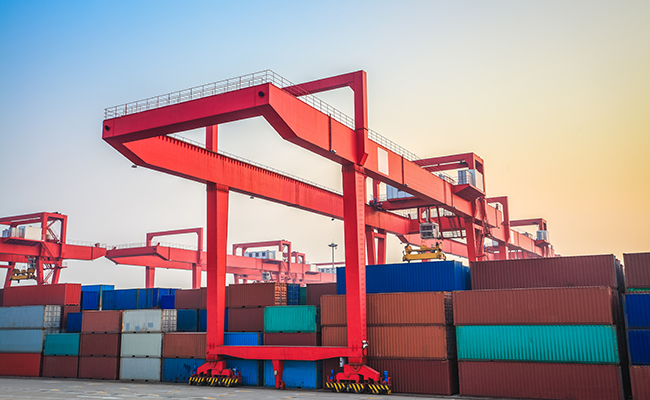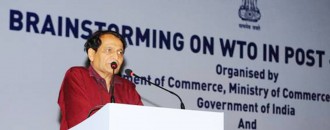
India for UNESCAP resolution on dry ports development
The Dollar Business Bureau  The Government of India, on Tuesday, gave its approval for passage of the ‘Inter-Governmental Agreement on Dry Ports of International Importance’, for signature at the United Nations (UN) Headquarters in New York. The decision taken by the Union Cabinet chaired by the Prime Minister, Narendra Modi, is a follow up of the UN resolution for the development of the dry ports in Asia and the Pacific regions, says an official release. The agreement, under the Resolution of the United Nations Economic and Social Commission for Asia and the Pacific (UNESCAP), promotes international recognition for dry ports in the above-said regions. The agreement is also expected to facilitate investments for infrastructure development of dry ports. By forming guiding principles for development and operation of dry ports, the agreement is also expected to improve the operational efficiency of inter-modal transport services. Besides enhancing the environmental sustainability of freight transport, the agreement will also help in integration of the Asian highway network, the trans-Asian railways network and other modes, in the process of dry ports’ development. The agreement will also expand and facilitate the ways for the international transport of goods in view of growing international trade in the region. By developing an international-integrated-inter modal transport and logistics system, the agreement intends to improve Asia’s trade connectivity with its neighbouring nations. Other than India, there are totally 17 countries those who have signed such agreement favouring UNESCAP resolution for the development of ports, so far. The countries include Armenia, Bangladesh, Cambodia, China, Indonesia, Iran, and the Lao Peoples Democratic Republic, among others. The agreement is an outcome of the UNESCAP’s resolution on the implementation of the ‘Bangkok Declaration on Transport Development in Asia’ and is aimed at working towards the development of an inter-governmental agreement on the development of dry ports.
The Government of India, on Tuesday, gave its approval for passage of the ‘Inter-Governmental Agreement on Dry Ports of International Importance’, for signature at the United Nations (UN) Headquarters in New York. The decision taken by the Union Cabinet chaired by the Prime Minister, Narendra Modi, is a follow up of the UN resolution for the development of the dry ports in Asia and the Pacific regions, says an official release. The agreement, under the Resolution of the United Nations Economic and Social Commission for Asia and the Pacific (UNESCAP), promotes international recognition for dry ports in the above-said regions. The agreement is also expected to facilitate investments for infrastructure development of dry ports. By forming guiding principles for development and operation of dry ports, the agreement is also expected to improve the operational efficiency of inter-modal transport services. Besides enhancing the environmental sustainability of freight transport, the agreement will also help in integration of the Asian highway network, the trans-Asian railways network and other modes, in the process of dry ports’ development. The agreement will also expand and facilitate the ways for the international transport of goods in view of growing international trade in the region. By developing an international-integrated-inter modal transport and logistics system, the agreement intends to improve Asia’s trade connectivity with its neighbouring nations. Other than India, there are totally 17 countries those who have signed such agreement favouring UNESCAP resolution for the development of ports, so far. The countries include Armenia, Bangladesh, Cambodia, China, Indonesia, Iran, and the Lao Peoples Democratic Republic, among others. The agreement is an outcome of the UNESCAP’s resolution on the implementation of the ‘Bangkok Declaration on Transport Development in Asia’ and is aimed at working towards the development of an inter-governmental agreement on the development of dry ports.
This article was published on April 1, 2015.






 to success.
to success.